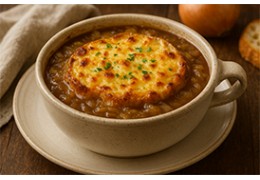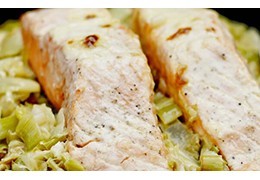Food & wine pairing: Risotto with green asparagus
The difficulty of pairing lies mainly in the aromatic identity of asparagus, which can clash with certain wines, particularly tannic reds or over-oaked whites. It is therefore essential to choose wines with great freshness, liveliness and an aromatic profile compatible with the dish's vegetal notes.
Green asparagus, though a little sweeter and less bitter than white asparagus, remains a delicate vegetable to match. It develops subtle aromas of chlorophyll, tender vegetable, hazelnut or even butter, depending on cooking. As for the risotto itself, it brings a creamy texture, a slightly milky base from the Parmesan or butter, and sometimes a touch of iodine if a particular broth is used.
.Faced with this complex taste profile, red wines are generally ill-suited. The tannins they contain would clash with the vegetal notes of asparagus, generating a metallic or bitter sensation on the palate. It is therefore preferable to opt for dry white organic wines, taut and fresh, capable of dialoguing harmoniously with the dish without overwhelming its flavors.
Wines made from the Sauvignon blanc grape, particularly those from the Loire Valley, make for a classic alliance with great accuracy. A Sancerre bio blanc or a Pouilly-Fumé, with their aromas of citrus fruit, white flowers, and sometimes a chalky mineral touch, perfectly underline the vegetal freshness of the risotto while adding a welcome tension. These wines have a clean acidity and a beautiful aromatic purity that balance the unctuous texture of the dish.
Beyond Sancerre and Pouilly-Fumé, other Loire appellations such as Menetou-Salon, Quincy or Reuilly, also made from Sauvignon blanc, offer wines with a lively, fragrant character, perfectly able to enhance the delicacy of green asparagus. Muscadet Sèvre-et-Maine sur lie, produced in the vineyards of Nantes, is another choice alternative. Boasting great freshness, a light natural pearliness and discreet lemony notes, it offers ideal support to the risotto's flavors without dominating them.
.In Burgundy, the Petit Chablis or Chablis appellations, based on unwooded Chardonnay, offer dry, taut, mineral wines. Their aromatic purity and fine acidity are perfectly suited to accompany a green asparagus risotto, especially if the dish is enhanced with lemon zest or fine herbs.
White wines from the South of France can also offer fine pairings, provided you choose fresh, low-wooded vintages. A Bandol blanc du domaine de la Tour du Bon, mostly made from Rolle (or Vermentino), presents aromas of citrus, white flowers and fine vegetal notes that resonate nicely with the dish's springtime flavors. Picpoul de Pinet, a lively, iodized white wine from Languedoc, also makes a remarkable pairing, thanks to its marked acidity and light aroma. Clairette du Languedoc, more discreet but with a lovely freshness, is another interesting option.
Jura and Savoie are terroirs capable of providing white wines with a particularly well-suited profile. An Arbois Chardonnay or a Savagnin ouillé (i.e. without oxidation) offers subtle dried fruit aromas and a discreet minerality that support without dominating the vegetal flavor of the asparagus. Savoy wines, such as Roussette de Savoie or Chignin-Bergeron, also offer lovely freshness and light floral notes perfectly compatible with the structure of risotto.
.Sparkling wines, often overlooked in food and wine pairings with vegetables, can prove invaluable allies. A Crémant de Loire, Crémant de Bourgogne or Crémant du Jura, in brut and low dosage versions, brings lightness and relief to the dish thanks to the finesse of its bubbles and its vivacity. A brut nature Champagne, with its great tension and lack of sweetness, can also magnify a green asparagus risotto, especially when served as part of a festive meal.






